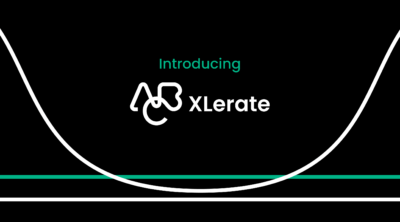A continuation of articles from our Fitness Founders series: Mehdi Elaichouni of Carpe Diem Jiu Jitsu Singapore shares his first-hand experiences of personally navigating challenges along the road to success. He highlights key learnings and actionable takeaways to help new fitness businesses grow and succeed.
I love Jiu-Jitsu but had to stop training and competing due to several injuries sustained over the past ten years. That’s when I decided to start my own Jiu-Jitsu gym to share my love of the sport with others. Once I had this idea, I had to decide if I wanted to carve out a personal best by creating my own brand or follow a WOD and become a franchisee. Of course, there are pros and cons to both options, but for me, making a decision came down to two simple questions: Can I build a brand from scratch, and do I want to build a brand from scratch?
Skip ahead to:
- 1. What does it take to build a brand from scratch?
- 2. The pros and cons of franchising
- 3. What other options do I have?
1. What does it take to build a brand from scratch?
Building a brand from scratch goes beyond creating a logo or building followers on a social platform. You’ll need design and marketing skills and have to allocate budget, resources, and time. A brand is not just a logo; you will need a brand positioning, visual identity, and activities to build it. It takes three to five years for a brand to become noticeable.
It’s going to take a few years
My wife and I started a self-funded skincare brand in 2016. We had the required skills to build a new brand, but it still took us almost five years to get a glimpse of what a successful new brand could look like. I’ve also spent much of my professional life navigating the brand-building maze for big corporates, so I knew I didn’t want to do it again for my jiu-jitsu business.
Dedicate budget
Many new business owners prefer to focus on tactical activities at the start, to maximize ROI or increase conversion. Brand building will need dedicated budgets and objectives that will not directly tie back to sales. If you prefer to focus on generating sales, I would explore either becoming a franchisee or taking on a brand affiliation, which is a shortcut that worked for me.
Apply for a trademark before launch
Since you have decided to invest in brand building, ensure you protect it by applying and receiving your brand trademark before launch. There are some intricacies to trademark laws, and application time varies in each country, so it’s better to seek out an IP lawyer and plan for the trademark ahead of time.
The Top 10 Barriers
Slowing Your Fitness
Business Growth
Discover more 2. The pros and cons of franchising
The pros
Franchises are a great option if you don’t know and don’t want to build a brand. A franchise model lets you buy into a successful business model with a proven track record, and it supports you with an established training program, ongoing support, and an operations manual. It’s also beneficial to buy into a brand that already has trust and awareness and comes with a loyal following.
The cons
Unfortunately, franchise buy-in fees can be high, and there are fixed costs you need to pay. Their profit-sharing model also eats into your take-home. You won’t get much flexibility in anything related to the brand. If the image takes a hit, it cascades down to franchisees.
Franchising is a great option if you are detail-oriented, comfortable working with established systems, and happy to follow the instruction manual. On the other hand, if you think you’d prefer more autonomy, read on and explore the option I took with Carpe Diem.
3. What other options do I have?
I wanted a third option that could give me a shortcut on the brand and allow me to focus on running the business. So I looked at Jiu-Jitsu brands worldwide, ultimately focused on Asia, and there was one brand that stood out.
Carpe Diem started in Japan more than ten years ago and is now the biggest team in Asia, with world and regional champions within the team. Although my world champ dreams are now hibernating, this aspect of the brand appealed to me. In addition, Carpe Diem stood out from the other Jiu-Jitsu brands because it has a simple black and white look and a lifestyle element. Most brands in the market tend to take on a strong and fierce identity (think warriors, strong shapes, and alpha animals).
We got in touch with them to become a Carpe Diem affiliate, which basically allows us to operate and use the Carpe Diem brand in Singapore. On top of providing a logo and visual identity, it also came with an established reputation that gave us credibility and trust from the get-go. In addition, this shortcut allowed us to focus on running the business – developing the product, customer service, marketing, operations, etc.
In Summary
The brand name of your business is the first thing customers will see. Your audience needs to remember your brand and know what it stands for. Figure out what you’re good at, what you’re not, and what you’re willing to invest time and money in.















